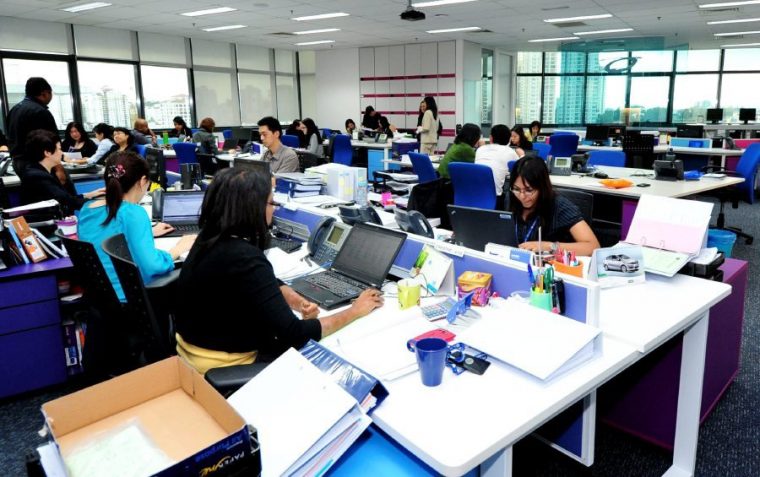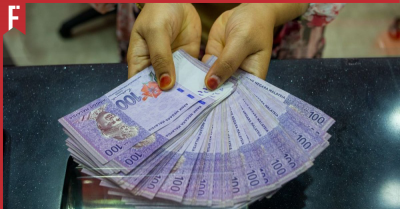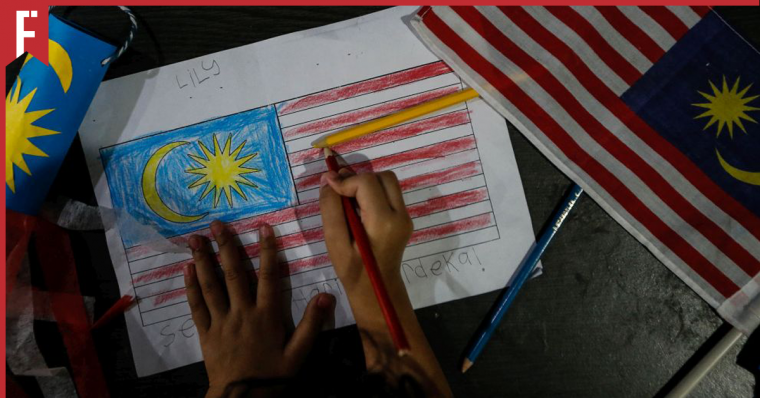
As Malaysians, we all have one thing in common.
I’m not talking about liking roti canai or saying ‘lah’ at the end of every sentence. I’m talking about something deeper and more profound than that. Something that we all have regardless of race, religion or skin colour.
Without it, we cannot even call ourselves Malaysians.
I’m talking, of course, about citizenship.
For most of us, citizenship is simple enough. You’re born here, you get Malaysian citizenship. Not that hard to grasp, right?
Unfortunately, that’s not always the case.
Men Are From Malaysia, Women Are From…
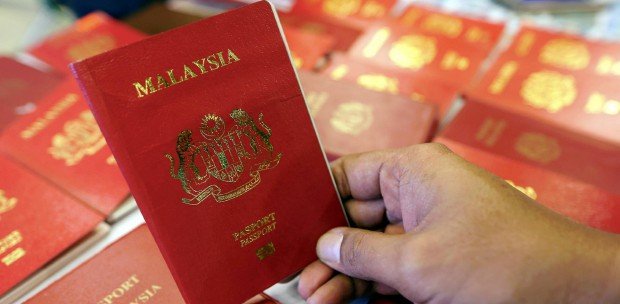
Up until very recently, Malaysia was one of only 22 countries in the world that didn’t give mothers and fathers equal rights in terms of citizenship.
Here’s how it worked: if you’re a Malaysian man who’s married to a foreign wife, you could automatically pass on your citizenship to your kids. This applies even if your kids were born overseas. Just register the birth, wait around three days and boom, your kid’s Malaysian.
Malaysian women, on the other hand, aren’t so lucky.
If you’re a Malaysian woman with a foreign husband, you cannot automatically pass on your citizenship to any kids born outside of Malaysia. You’d have to manually apply for each child — a process with less than 2% success rate!
And this isn’t a one-in-a-million, never-before-seen issue either. As of December 2020, there are over 40,000 Malaysian women trying to seek citizenship for their children!
What Happens If They Can’t Get Citizenship?
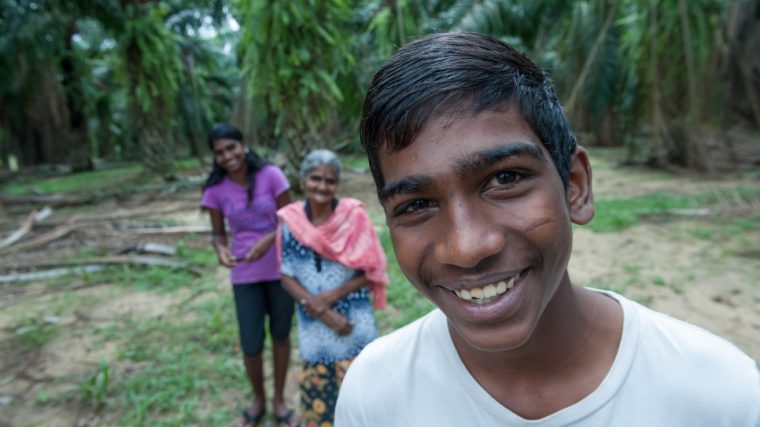
For the vast majority of us, having citizenship is like having air. We never see or think about it, but if it were to disappear, our lives would quickly become very uncomfortable.
According to the Ministry of Home Affairs, citizenship is “the highest award, which is only given by the government to individuals that are qualified, able to contribute significantly to the nation and devout utmost loyalty to His Majesty the Yang di-Pertuan Agong”.
Citizenship is a big issue, one that can affect your entire life. Without a Malaysian IC, living in Malaysia becomes much more… difficult.
For mixed nationality families, the situation gets even worse if the kids can’t inherit their father’s citizenship either. Such children are considered stateless, which is, well… really bad.
“Why is it such a big deal?” You may ask. “They don’t need an IC to survive, right?”
Well, let me put it this way — some of the biggest problems faced by stateless children include:
- No access to formal education
- Cannot buy a house or car
- Difficulties accessing healthcare and medication
- No freedom to travel
In other words, these children have none of the basic rights that all of us take for granted. And it’s not just the kids who suffer, either.
“Some women stay in very toxic marriages because they are so scared that if they leave, then their children, not being Malaysian, won’t be able to come back with them.” said Family Frontiers spokesperson Chee Yoke Ling.
Fighting For Equal Rights
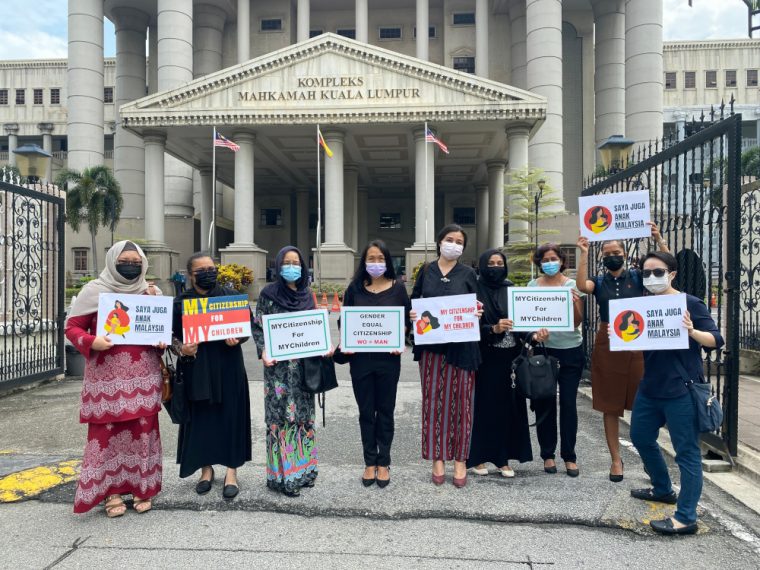
In December 2018, Family Frontiers Founder Suri Kempe and six other Malaysian women filed a lawsuit to ensure equal rights for male and female Malaysian parents.
For almost three years, Suri and her fellow Malaysian mothers have worked tirelessly to fight for their rights.
Finally, on 9 September 2021, the Kuala Lumpur High Court announced a new ruling to ensure that Malaysian women would have equal parental rights as their male counterparts. Now mothers would be able to pass on their citizenship to their kids regardless of the father’s nationality or what country they were born in.
For Suri and countless other Malaysian mothers, this new ruling has been met with cheers and jubilation.
“This judgement recognises Malaysian women’s equality, and marks one step forward to a more egalitarian and just Malaysia,” she said, after hearing the judge’s decision.
All in all, it was a historic moment. Finally, for the first time in history, Malaysian mothers would have the same rights as Malaysian fathers.
Which is probably why everyone was so surprised when the government tried to overturn it just a few days later.
Trying to Turn Back The Clock

To put it simply, our government has been rather… critical about the whole situation from the very beginning.
Back in May 2021, the government attempted to dismiss Family Frontier’s lawsuit, claiming that it was a “frivolous” issue.
Which is interesting, because in a Parliamentary meeting in December 2020, Deputy Home Minister Datuk Seri Ismail Mohamed Said claimed that the unequal citizenship issue was a matter of “national security”.
“This is because in other countries, (most) children born overseas will follow their father’s citizenship. Therefore, we must be diligent to prevent the child from being granted dual-citizenship.” he said.
I suppose that Malaysians are lucky, in a way. Everyone else is worrying about terrorists like Al-Qaeda, but apparently the most dangerous threats to our national security are babies.
Once the high court made their decision, everyone believed that things were over. However, on 13 September — just four days after the announcement, the Malaysian government launched an appeal to overturn this ruling and turn back the clock.
“A Betrayal”
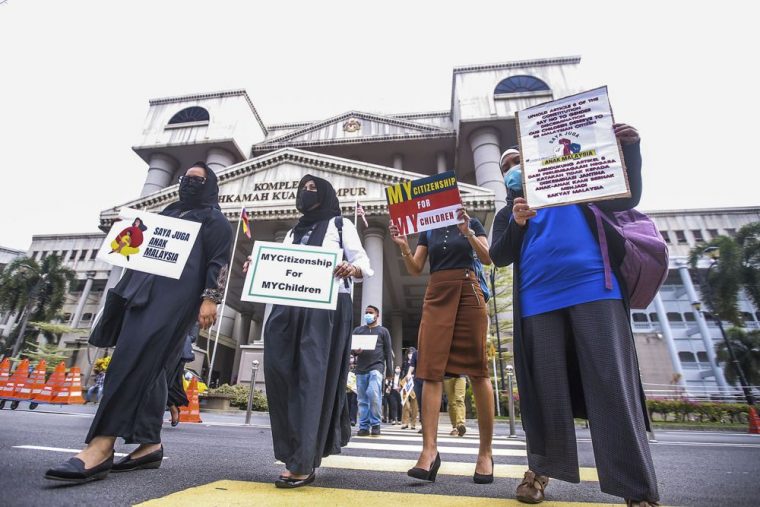
To say that Malaysian women are shocked would be an understatement.
Family Frontiers has denounced the government’s move as “a betrayal of the rights that are long overdue to Malaysian women”.
Wanita MCA chief Datuk Heng Seai Kie has called for the situation to be resolved quickly to end the suffering of innocent children.
“They are denied their right to citizenship despite it being no fault of theirs at all,” she said.
Pengerang MP Datuk Seri Azalina Othman Said, on the other hand, has been much more aggressive about her opinion.
“Be fair to all. If the mother cannot get it, don’t give it to the fathers either. Why is it that the mothers are denied (the automatic citizenship right for their children) while it is okay for the fathers?”
#TarikBalikRayuan

Despite receiving criticism from all sides, Home Minister Hamzah Zainudin has still refused to withdraw the government’s appeal.
Fortunately, the women of Malaysia are not giving up their fight for equality. Family Frontiers and other women’s rights NGOs have made it clear that they will pursue every means necessary to make the government back down — including voting them out. In an official statement, they announced that:
“The government’s action in appealing against the decision sends out a clear message that they are in favour of the continued discrimination and marginalisation of Malaysian mothers. We will not tolerate an administration that continues to defend archaic and sexist laws.”
If you’re interested in making your voice heard, you can help out by signing the Family Frontiers’ #tarikbalikrayuan petition.
Despite all the progress we’ve made, it’s clear that Malaysia still has a long way to go when it comes to equal rights. To learn about some of the other major challenges faced by Malaysian women today, be sure to check out:
Work Like A Woman: What Does That Even Mean Anymore?
